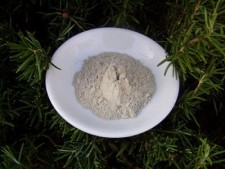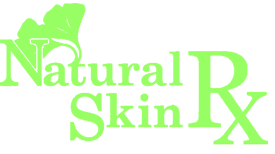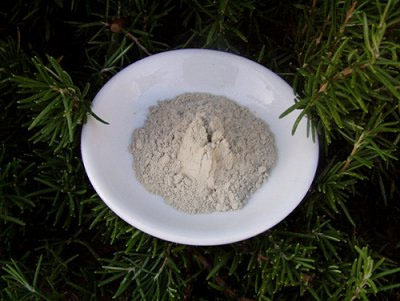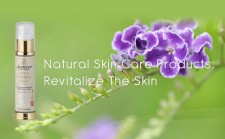 Clay has a remarkable capacity to bind with many kinds of substances, including sebum. Sebum is a mixture of oily chemicals that are manufactured in special microscopic glands at the base of hair follicles and in pores on hairless parts of the body. Normal sebum mostly consists of a variety of triglycerides, free fatty acids, and wax esters whose function is to provide waterproofing and lubrication for the skin and to act as a barrier against infectious microbes and environmental toxins. In addition, sebum delivers antioxidants, including vitamin E, to the upper layers of facial skin. The question is, if sebum is so important, why would you want to use clay to bind it? The clearest answer is that, even though sebum is important, too much of a good thing is a problem. Specifically, overproduction of sebum leads to oily skin. The most common trouble attributable to oily skin is acne. Excess sebum also combines with keratin (skin debris) to form plugs in pores, resulting in the formation of blackheads or whiteheads.
Clay has a remarkable capacity to bind with many kinds of substances, including sebum. Sebum is a mixture of oily chemicals that are manufactured in special microscopic glands at the base of hair follicles and in pores on hairless parts of the body. Normal sebum mostly consists of a variety of triglycerides, free fatty acids, and wax esters whose function is to provide waterproofing and lubrication for the skin and to act as a barrier against infectious microbes and environmental toxins. In addition, sebum delivers antioxidants, including vitamin E, to the upper layers of facial skin. The question is, if sebum is so important, why would you want to use clay to bind it? The clearest answer is that, even though sebum is important, too much of a good thing is a problem. Specifically, overproduction of sebum leads to oily skin. The most common trouble attributable to oily skin is acne. Excess sebum also combines with keratin (skin debris) to form plugs in pores, resulting in the formation of blackheads or whiteheads.
What is Clay?
Clay is a general term that refers to fine-grained soils that combine certain minerals and metal oxides, along with a small amount of trapped moisture, into different mixtures of what geologists refer to as layered silicates. There are more than two dozen major types of clay. Different clays have a long history of medical, agricultural, and industrial uses. Up to two-thirds of the world’s population live or work in buildings made with clay. Clay as medicine goes back to prehistoric times, when it was used internally to soothe an upset stomach and to suppress hunger. One type of clay, called kaolin clay (also known as white dirt, white chalk, or white clay), is still consumed for its health benefits during pregnancy. In South America it continues to be eaten as a means to bind with toxins in wild potatoes. (Not to worry, our cultivated potatoes do not contain these toxins except for a minor amount in green skins.) Another type, called bentonite clay, is an important ingredient in many supplements for aiding digestion. It should be no surprise that the versatility of different kinds of clay includes their uses in natural skin care products. Indeed, the most important of these uses entails the ability of clay to diminish the problems of sebum overproduction.
Sebum – Too Much of a Good Thing
Scientists have discovered that bentonite is so powerful in absorbing sebum that it can be used for measuring the rate of sebum secretion from skin. The standard method involves embedding a disk of fine Dacron mesh in fresh clay, then applying the disk to the forehead for up to 3 hours. The amount of sebum extracted from one of these disks reflects the rate of secretion. Typically, this method shows that subjects with acne have a three-fold higher rate of sebum secretion than those without acne. This is the kind of study that points to a high sebum secretion rate as the decisive factor in inflammatory acne. The use of bentonite clay for studying sebum secretion shows how effective this clay is for binding sebum. This is the underlying reason for including bentonite clay in natural skin care products for those who have oily or acne-prone skin.
Combining Herbs with Clay
Focus on sebum secretion reveals a number of processes that interact with one another. The removal of cellular debris, the oxidation of triglycerides, and the balance of proper microbes are the main ones. Excess sebum creates an imbalance in all of these processes, which becomes apparent with a flare-up of acne. Slowing down sebum secretion is an important component for restoring balance, although it is not the only one. It is equally important to provide antioxidants for controlling the degradation of triglycerides min sebu and for quenching the inflammatory response of the immune system when it reacts to bacterial growth. The combination of processes that go haywire with too much sebum illustrates the need for multiple ingredients in skin care products that support skin health. The best natural skin care products should therefore include not only clay but also herbs that provide the necessary antioxidants and other ingredients for stimulating the healthy metabolism of skin. Jadience Herbal Formulas focuses on such ingredients in products like the Cleansing Cream for Normal to Oily Skin. It contains both bentonite and kaolin clays as well as extracts of green tea, Artemisia, mulberry and many other herbs that are well-known for their skin health benefits.


